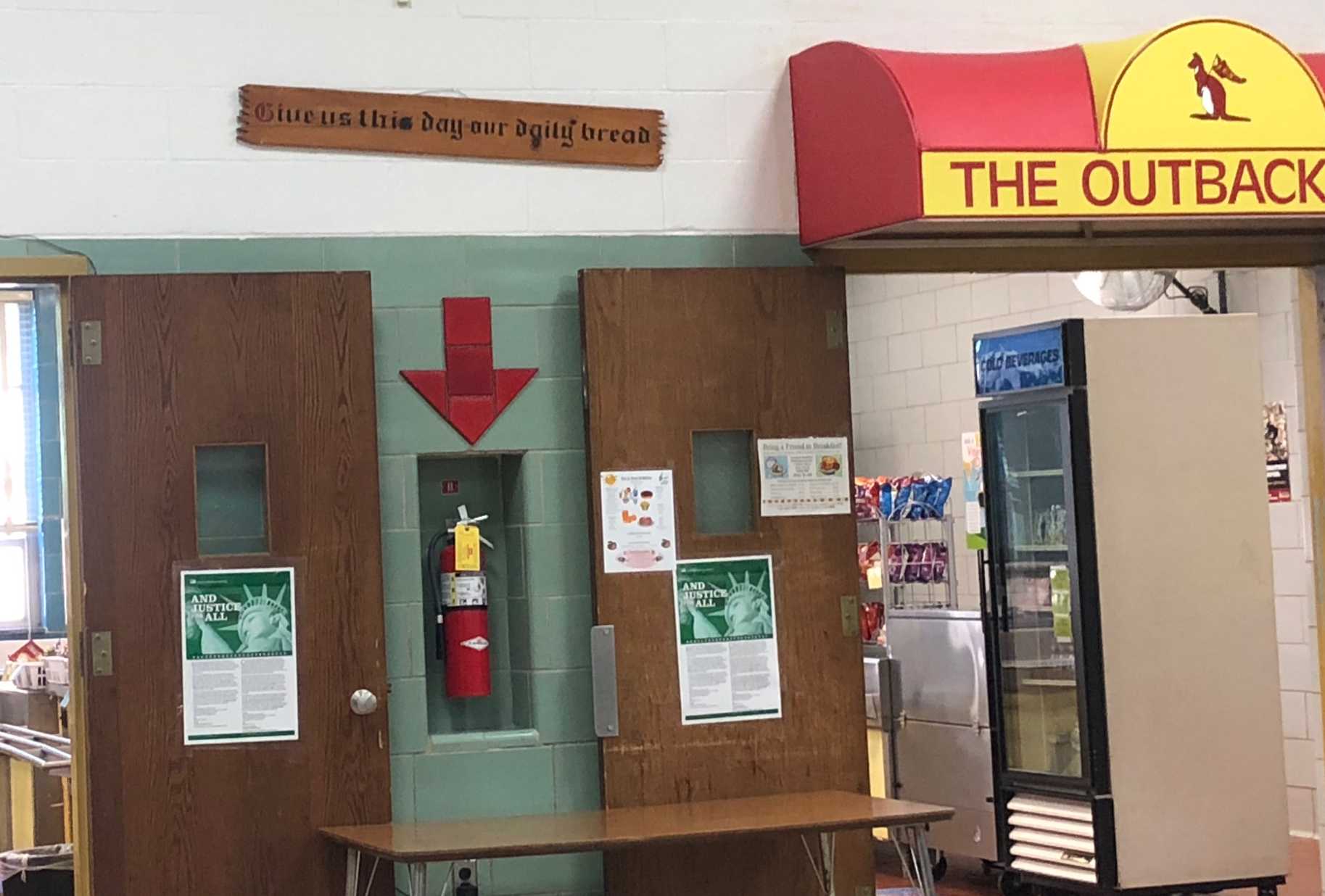 JARRETTSVILLE, Md. — A sign that featured a phrase from The Lord’s Prayer has been removed from the cafeteria of an elementary school in Maryland following receipt of a complaint from one of the nation’s most conspicuous professing atheist groups.
JARRETTSVILLE, Md. — A sign that featured a phrase from The Lord’s Prayer has been removed from the cafeteria of an elementary school in Maryland following receipt of a complaint from one of the nation’s most conspicuous professing atheist groups.
“Religion is divisive and exclusionary and has no place in our public schools,” Freedom From Religion Foundation (FFRF) Co-President Annie Laurie Gaylor said in a statement on Thursday.
The organization says that it has received an email from the school district advising that the plaque is no longer displayed in the lunchroom.
As previously reported, FFRF sent a letter last month to the superintendent of Harford County Public Schools after being contacted by a parent who reported that a sign reading “Give us this day our daily bread” was being displayed in the Jarrettsville Elementary School cafeteria.
The phrase is taken from Matthew 6:11, and is part of an exemplary prayer that Jesus taught his disciples to pray.
FFRF said that since the quote is part of a prayer, it must be removed from the cafeteria in order to comply with the Establishment Clause of the U.S. Constitution. The clause reads, “Congress shall make no law respecting an establishment of religion.”
“Elementary students should not have to view materials promoting a Christian message,” the group wrote in its correspondence. “There is no educational or academic component or motive for such postings; their presence is proselytizing to a captive audience. Students may infer from the plaque that [the] school has a preference for religion over non-religion, and in this case, Christianity over other faiths.”
“The district has an obligation to ensure that its schools are welcoming to all students, not just to those in the Christian majority,” it asserted.
Christian News Network reached out to Harford County Public Schools to obtain information either way on the status of the sign, but a response was not received as of press time.
As previously reported, FFRF has convinced other government entities to remove faith-based plaques on their walls, including Spiller Elementary School in Wytheville, Virginia, which similarly had a sign in its lunchroom featuring a prayer for God to bless the food.
Last year, two police departments—one in Knoxville, Tennessee and another in Onalaska, Wisconsin—removed plaques from their walls after FFRF complained about their religious content. Earlier this year, a courthouse in Hibbing, Minnesota removed a plaque from its wall that featured God’s Laws.
However, as previously reported, some judges believe that the Establishment Clause of the U.S. Constitution is being misconstrued as courts have been stuck in a rut of bad case law rather than viewing the text in light of the Christian roots of early American history.
Last month, U.S. District Judge C. Ashley Royal wrote an extensive opinion in which he provided an outline of America’s beginnings, including the Puritans’ desire for a land where they could escape conformity to the Roman Catholic Church and worship God in the purity of the early Church.
He explained the controversies that arose as other denominations—such as Baptists, Quakers and Congregationalists—came into the picture, and it soon became apparent through disagreement over doctrine that men needed to call for “religious toleration” as there couldn’t be one particular national church. That is, the government wasn’t going to establish the Baptist, or Puritan, or Congregational denomination as being the official church of the nation. It couldn’t choose one over the other.
“Without letting the founders speak, without hearing their words and reading their papers, I think it is hard for us living in our post-modern, highly secular society to understand the religiosity of early Americans and the often tyrannical adversity that beat down religious minorities like the Baptists and the Quakers,” Royal wrote.
“Religious toleration … was for everyone, and the federal government could not establish a national church. This protected religious freedom in the new country. But state governments could be involved in religion, and ‘separation’ only operated at the national level,” he explained.
Become a Christian News Network Supporter...


